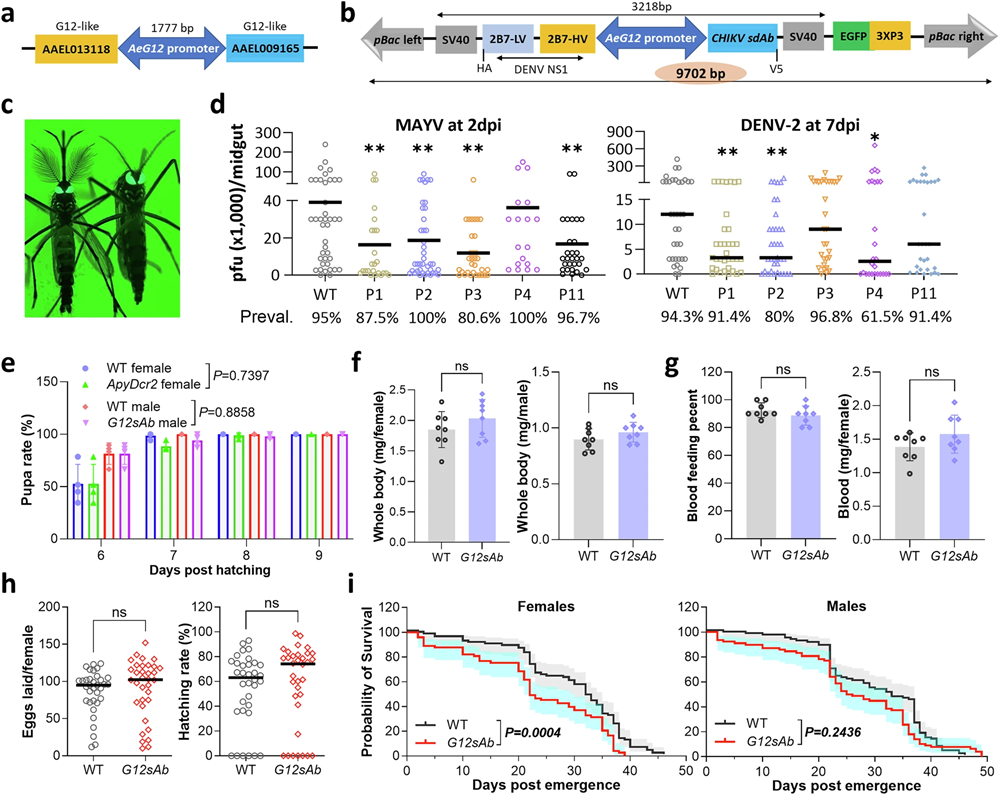Neutralizing Viruses at the Source: Engineered Antibodies in Mosquitoes Offer New Hope Against Arbovirus Threats

Arboviruses like dengue, Zika, chikungunya, and Mayaro continue to challenge global public health, especially in tropical and subtropical regions. As traditional mosquito control measures face increasing limitations, researchers are turning to biotechnology for innovative solutions—starting from inside the vector itself.
A recent study has shown that engineered small antibodies (sAbs), such as single-chain variable fragments (scFv) and single-domain antibodies (sdAb), can be used to create transgenic Aedes aegypti mosquitoes that are significantly less capable of transmitting multiple arboviruses.
Using a midgut-specific promoter that activates after blood meals, scientists achieved strong expression of protective antibodies directly in the mosquito's midgut—where viruses first establish infection. These antibodies, originally developed to neutralize dengue and chikungunya in mammalian cells, proved equally effective within mosquitoes. Their presence significantly reduced midgut infections of several arboviruses, thereby limiting the potential for viral transmission to humans.
To enhance this protective effect, the study also introduced Dcr2, a key component of the mosquito's antiviral RNA interference (RNAi) pathway. The combination of antibody-based neutralization and innate immune activation led to even greater suppression of viral infections.
This dual strategy marks a breakthrough in vector-based control of arboviruses. By engineering mosquitoes that can actively resist infection with multiple viruses, researchers are paving the way for sustainable, scalable, and species-specific methods to reduce disease transmission—without relying on insecticides or behavioral interventions.
Source: communications biology